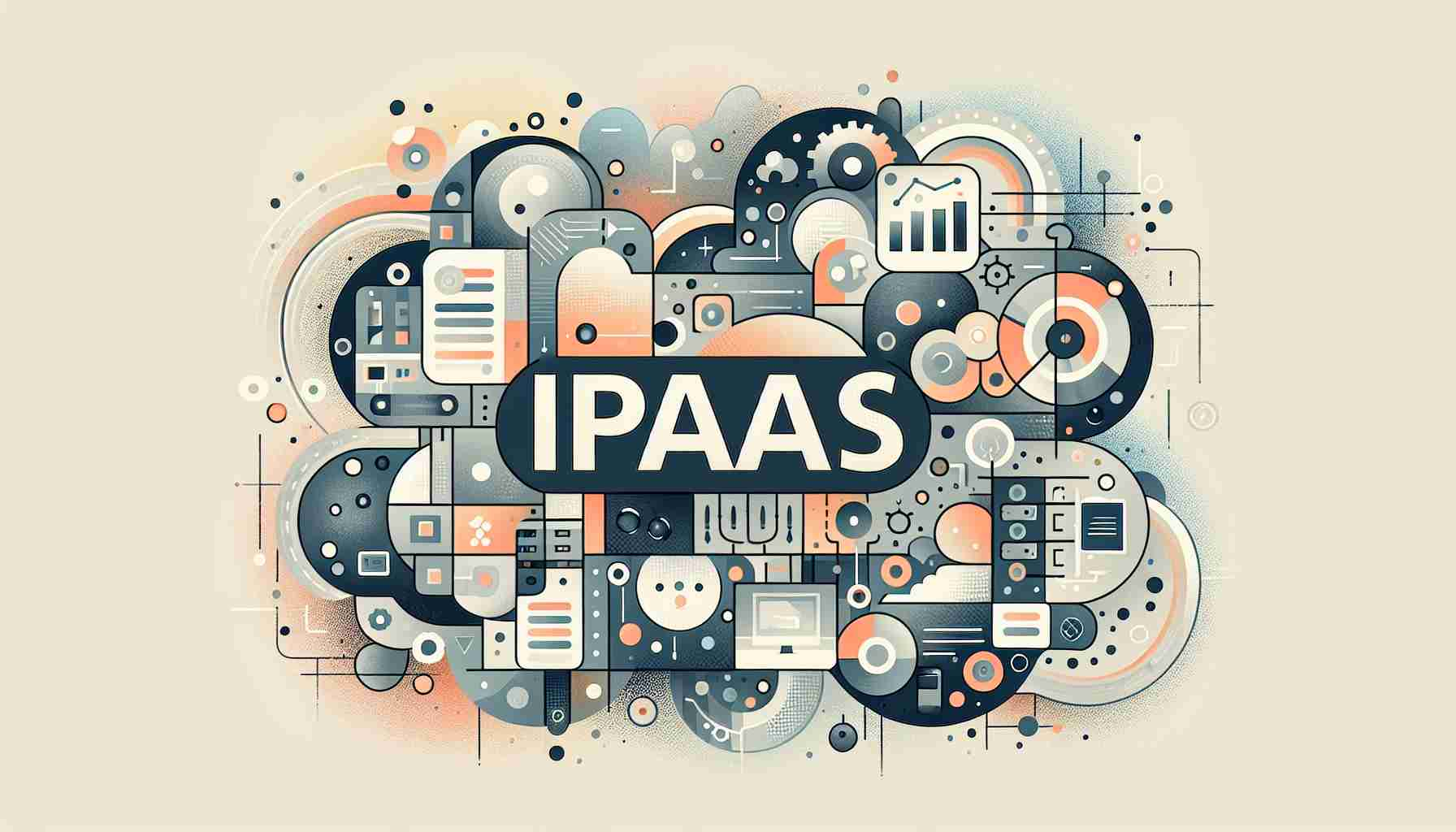Integration Platform as a Service (iPaaS) A Comprehensive Guide

iPaaS Briefly Summarized
- iPaaS stands for Integration Platform as a Service, a cloud-based solution that facilitates the integration of various software applications and data sources.
- It provides tools for automating business processes by standardizing cloud application integrations.
- iPaaS solutions are hosted and managed by service providers, offering a unified platform for both cloud and on-premises environments.
- The platform supports data, process, service-oriented architecture (SOA), and application integration.
- iPaaS is essential for businesses looking to streamline their operations by connecting disparate systems and ensuring consistent data flow.
Integration Platform as a Service (iPaaS) has emerged as a critical component in the modern data analysis and business process automation landscape. As organizations increasingly adopt cloud-based services and deal with a multitude of applications and data sources, the need for a robust integration strategy becomes paramount. iPaaS offers a solution to these challenges by providing a platform that simplifies the integration of different systems, whether they are on-premises or in the cloud. This article delves into the intricacies of iPaaS, its benefits, use cases, and the role it plays in data analysis.
What is iPaaS?
Integration Platform as a Service (iPaaS) is a cloud-based service that offers a suite of tools to connect software applications deployed in various environments. It is designed to handle a wide range of integration scenarios, from simple point-to-point connectivity to complex, multi-step business processes. iPaaS platforms are typically offered as a subscription-based service, allowing businesses to scale their integration capabilities as needed without significant upfront investment in hardware or software.
The Role of iPaaS in Data Analysis
Data analysis requires the aggregation and processing of data from multiple sources. iPaaS plays a pivotal role in this process by enabling the seamless flow of data between disparate systems. It allows analysts to access, transform, and move data in real-time or batch processes, ensuring that they have the most up-to-date and accurate information for making data-driven decisions.
Key Features of iPaaS
iPaaS platforms come with a range of features that cater to various integration needs:
- Pre-built Connectors: Most iPaaS providers offer a library of pre-built connectors for popular applications and data sources, simplifying the integration process.
- Visual Interface: A user-friendly visual interface allows users to design and manage integrations without extensive coding knowledge.
- Automation and Orchestration: iPaaS solutions automate repetitive tasks and orchestrate complex workflows across multiple applications.
- API Management: The ability to create, manage, and monitor APIs is a core feature of iPaaS, facilitating secure data exchange.
- Scalability: iPaaS platforms are built to scale, accommodating the growing data and integration needs of businesses.
Benefits of Using iPaaS
The adoption of iPaaS offers numerous benefits to organizations:
- Reduced Complexity: By centralizing integration efforts, iPaaS reduces the complexity associated with connecting multiple systems.
- Cost Efficiency: With iPaaS, companies can avoid the high costs of traditional integration methods that require custom coding and maintenance.
- Increased Agility: iPaaS enables businesses to respond quickly to changing market conditions by easily adding or modifying integrations.
- Enhanced Collaboration: A unified integration platform fosters collaboration between IT and business teams, leading to more effective outcomes.
- Improved Data Quality: Consistent integration processes help maintain data accuracy and integrity across systems.
iPaaS Use Cases
iPaaS can be applied in various scenarios, including:
- Enterprise Application Integration (EAI): Connecting enterprise systems such as CRM, ERP, and HRM to streamline operations.
- Data Integration: Aggregating data from multiple sources for analysis and reporting.
- B2B Integration: Facilitating data exchange with partners, suppliers, and customers.
- IoT Integration: Integrating data from IoT devices for real-time monitoring and analysis.
- Hybrid Integration: Bridging on-premises systems with cloud services for a hybrid IT environment.
Choosing an iPaaS Provider
When selecting an iPaaS provider, consider the following factors:
- Connectivity: Ensure the provider offers connectors for the specific applications and data sources you need.
- Ease of Use: Look for a platform with an intuitive interface that suits your team's skill level.
- Security: Evaluate the provider's security measures to protect your data during transit and at rest.
- Compliance: Verify that the platform complies with relevant industry standards and regulations.
- Support and Community: Access to support and a community of users can be invaluable for troubleshooting and learning best practices.
Conclusion

iPaaS has become an indispensable tool for organizations seeking to integrate their disparate systems and harness the power of their data. By providing a flexible, scalable, and cost-effective platform, iPaaS enables businesses to build a cohesive IT infrastructure that supports data analysis and informed decision-making. As the digital landscape continues to evolve, iPaaS will play an increasingly vital role in helping organizations adapt and thrive.
FAQs on iPaaS
What is iPaaS? iPaaS, or Integration Platform as a Service, is a cloud-based platform that provides tools and services to integrate various software applications and data sources, facilitating automation of business processes.
How does iPaaS differ from traditional integration methods? iPaaS offers a more scalable, flexible, and cost-effective approach to integration compared to traditional methods, which often involve custom coding and significant maintenance efforts.
Can iPaaS handle real-time data integration? Yes, many iPaaS solutions are designed to support real-time data integration, enabling immediate data processing and analysis.
Is iPaaS suitable for small businesses? Absolutely. iPaaS can be particularly beneficial for small businesses due to its scalability and subscription-based pricing model, which eliminates the need for large upfront investments.
How secure is iPaaS? Reputable iPaaS providers implement robust security measures, including encryption, access controls, and compliance with industry standards, to ensure the security of data handled by their platforms.
Sources
- Cloud-based integration
- What is iPaaS? Guide to Integration Platform as a Service - TechTarget
- Top 7 Integration Platform as a Service (iPaaS) Software Companies ...
- What is Integration Platform as a Service (iPaaS)? - Celigo
- What is an Integration Platform as a Service (iPaaS)? - MuleSoft
- What is iPaaS? Integration Platform as a Service explained - Workato
- What is Integration Platform as a Service (iPaaS)? - IBM
- What is iPaaS? - Integration Platform as a Service Explained - AWS
- The Ultimate Guide to iPaaS (Integration Platform as a Service)
- What is iPaaS? - TIBCO